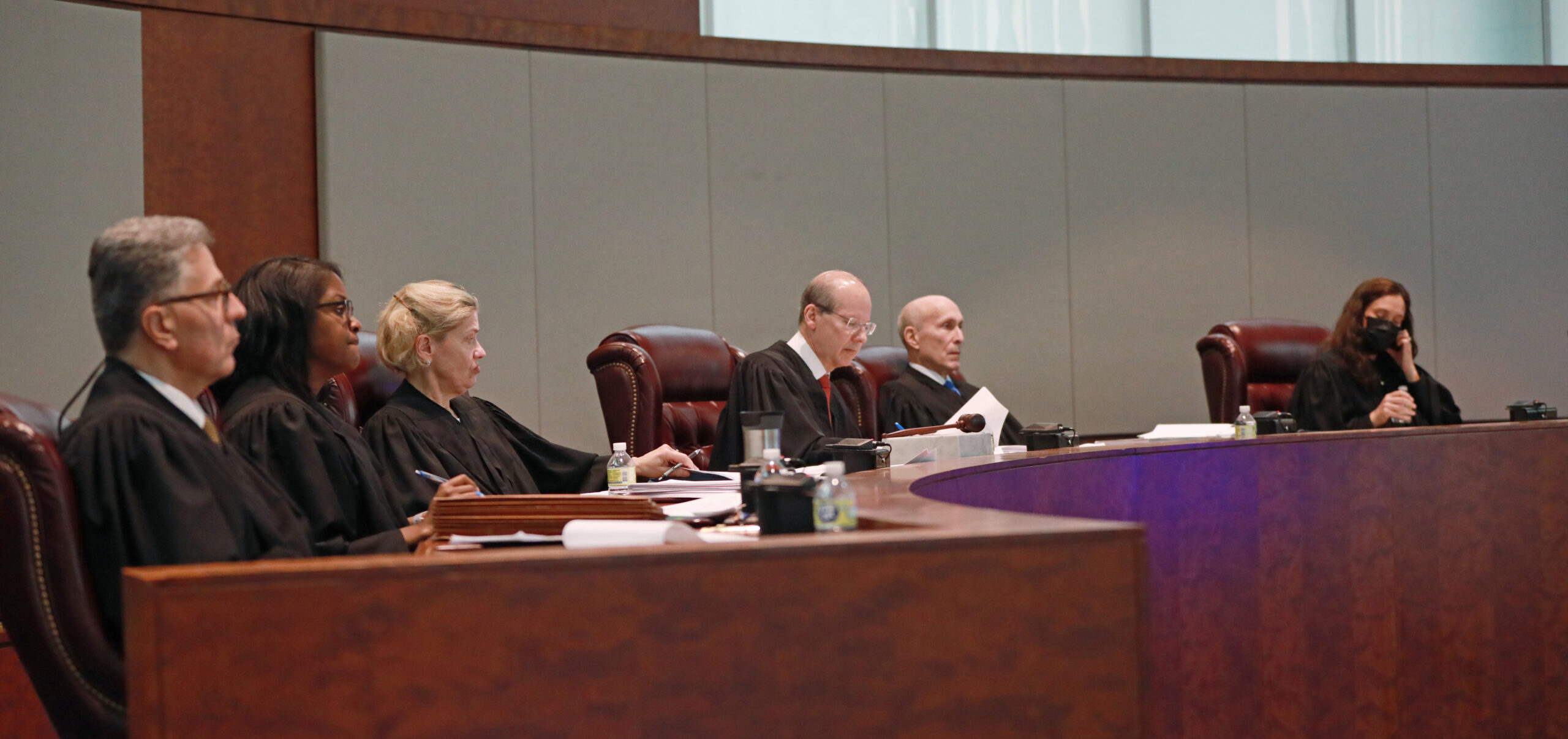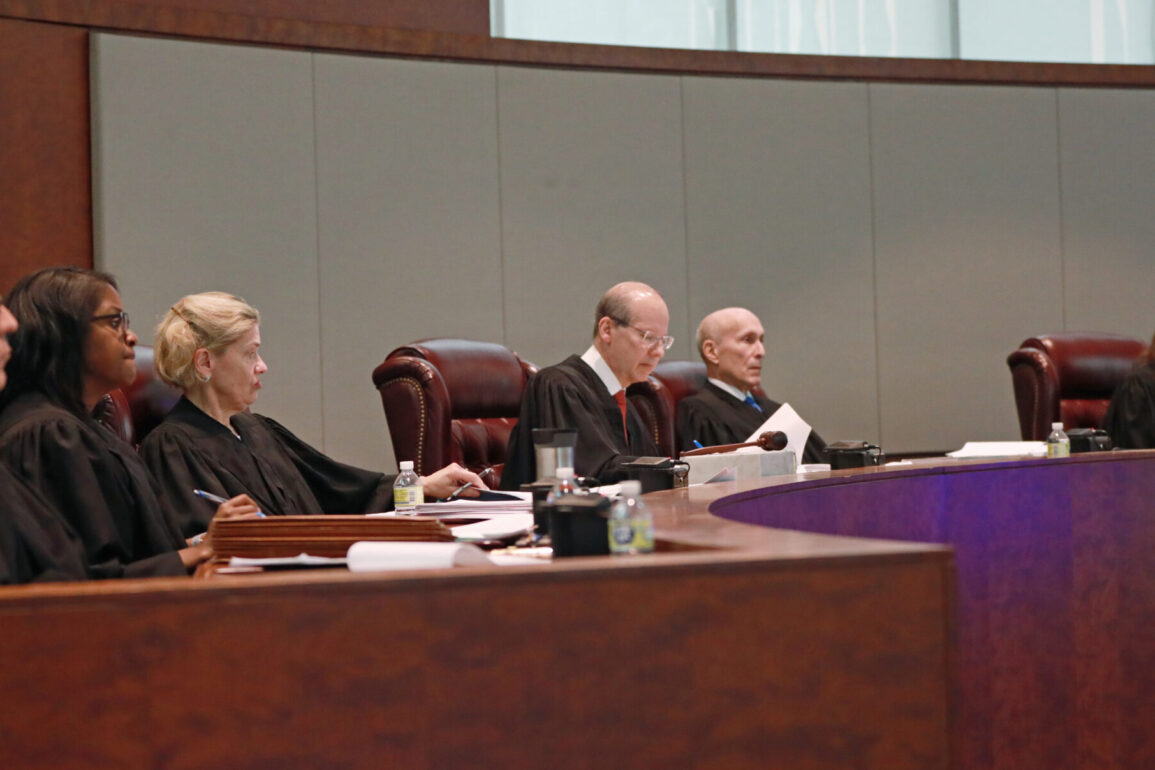
DNA evidence brought a recent break in the long-unsolved 1990 rape and murder of a young woman in Wildwood, but now a court battle over timing could keep prosecutors from trying the Millville man authorities arrested for her sexual assault.
The New Jersey Supreme Court heard arguments Tuesday in an appeal the Cape May County Prosecutor’s Office brought after a lower court in March dismissed a second-degree sexual assault charge against Jerry Rosado, now 64.
The high court now must decide whether to uphold the appellate dismissal, or to reinstate Rosado’s case under legislative amendments enacted since victim Susan Negersmith’s death that expanded New Jersey’s statutes of limitations on sexual assaults and crimes with DNA evidence.
Rosado didn’t become a suspect until 2021, when advances in DNA testing drove detectives to submit biological evidence from Negersmith to a laboratory for genetic genealogy analysis. Rosado was charged after DNA from his cheek swab matched DNA found on Negersmith, a 20-year-old college student from New York who was on a Memorial Day weekend beach trip with friends when someone attacked and killed her in a Wildwood alley.
State lawmakers eliminated the five-year statute of limitations for sexual assaults starting in 1996. Because Negersmith was attacked six years before lawmakers changed the law, Rosado missed the cut-off by just one year, a stroke of luck for him that Gretchen A. Pickering, Cape May County senior assistant prosecutor, called “unfairness that necessarily results from arbitrariness.”
She implored the justices to consider what state legislators intended in their 1996 amendment and another in 2002 that tweaked the statute of limitations on crimes with DNA evidence. Statutes of limitations were meant to protect defendants from problems that arise from the passage of time, like faded memories, lost evidence, and witnesses that can’t be found — not cold cases like Negersmith’s that are solved with scientifically sound DNA evidence, she added.
“It is still a tremendous frustration that this is a matter of timing in a lot of respects,” Pickering said.
Richard D. Pompelio, founder of the New Jersey Crime Victims’ Law Center, urged the justices to remember victims’ rights and the justice that has eluded Negersmith’s family since her death was first wrongly ruled an accident. Her family’s persistent advocacy drove the medical examiner to declare the case a homicide several years later and legislators to change the statute of limitations on crimes with DNA evidence in 2002, Pompelio said.
“There was such a desire on the part of the Legislature to fix the injustice of Negersmith … because of the way she had been so disregarded as a human,” he said.
Defense and civil rights attorneys, though, told the justices that the appeals court got it right when they dismissed Rosado’s case. Their arguments touched on a state and federal constitutional protection called the ex post facto clause, which prohibits policymakers from enacting laws with certain retroactive effects. In a criminal context, the clause prevents any time extension for prosecution in cases where pre-existing time limitations already expired.
“No court has ever held that there is a DNA exception to the ex post facto clause, and that’s what’s at issue here,” said Morgan A. Birck, the public defender representing Rosado.
Attorney Jhanice Domingo, arguing on behalf of the Association of Criminal Defense Lawyers of New Jersey, echoed that sentiment. The ex post facto clause protects “against potential abuse or overreach by the legislative branch,” she told the justices.
“What the state is looking to accomplish here undermines the very fabric of our criminal justice system,” Domingo said. “The state is seeking to remove the constitutional safeguard of the ex post facto clause in order to prosecute an alleged crime that happened more than 30 years ago and is time-barred.”
Alexander Shalom of the American Civil Liberties Union of New Jersey agreed DNA evidence is “undoubtedly powerful.” But it also has limitations that are “painfully obvious in a case like this,” he added.
“What DNA tells us is that two people’s genetic material mixed at some point. It doesn’t provide dates. It doesn’t provide context. It doesn’t provide information on timing,” Shalom said. “And in a prosecution like this, where the allegation is that Mr. Rosado sexually assaulted someone who was sufficiently intoxicated, the timing matters. That they had sex doesn’t end the inquiry in the case. We would need to know when, and the condition that Ms. Negersmith was in at the time, and those things DNA doesn’t talk about.”
Homicide has no statute of limitations, and the justices asked Pickering why authorities didn’t prosecute Rosado for Negersmith’s homicide, because such a prosecution would avoid the timing conundrum altogether.
“In evaluating the evidence that we had available, there were questions as to whether we could proceed on the homicide charge,” Pickering responded.
GET THE MORNING HEADLINES DELIVERED TO YOUR INBOX
This post was originally published on this site be sure to check out more of their content.







